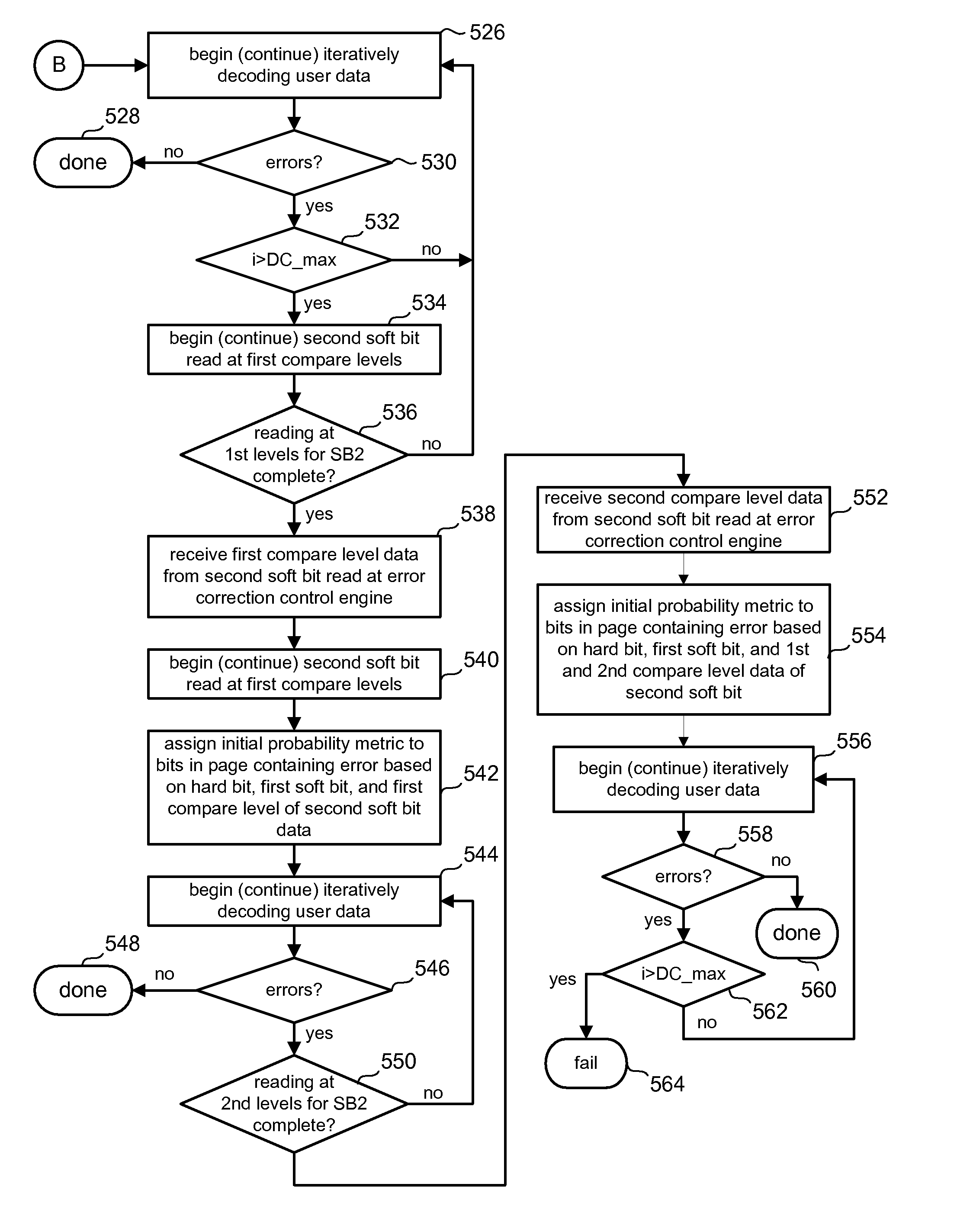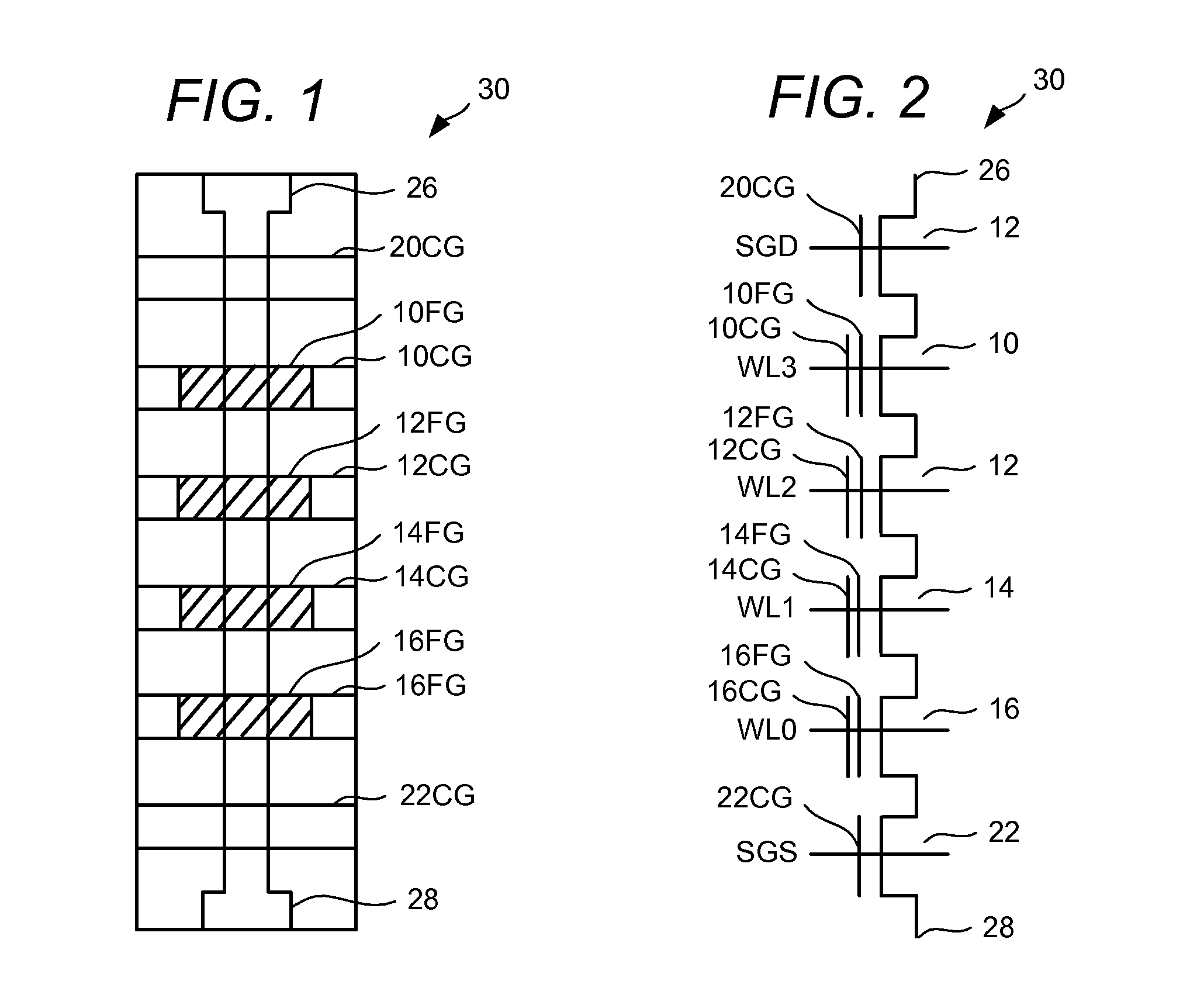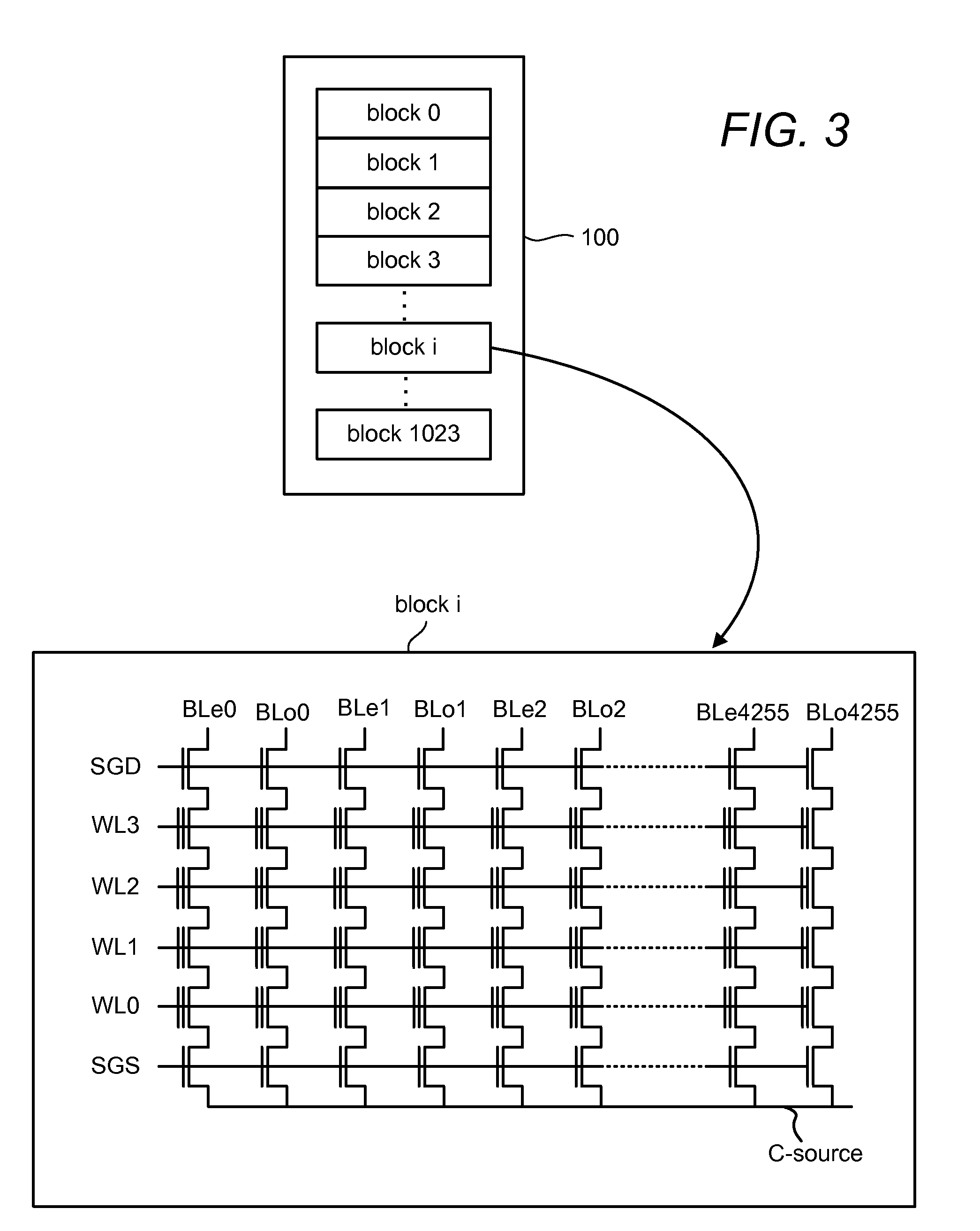Soft bit data transmission for error correction control in non-volatile memory
a non-volatile memory and data transmission technology, applied in error detection/correction, instruments, coding, etc., can solve problems such as data bits that are not intended for programming, encounter errors, and sometimes differ from intended programming states
- Summary
- Abstract
- Description
- Claims
- Application Information
AI Technical Summary
Benefits of technology
Problems solved by technology
Method used
Image
Examples
Embodiment Construction
[0037]One example of a flash memory system uses the NAND structure, which includes multiple transistors arranged in series between two select gates. The transistors in series and the select gates are referred to as a NAND string. FIG. 1 is a top view showing one NAND string 30. FIG. 2 is an equivalent circuit thereof. The NAND string depicted in FIGS. 1 and 2 includes four transistors 10, 12, 14 and 16 in series between a first select gate 12 and a second select gate 22. Select gate 12 connects the NAND string to bit line 26. Select gate 22 connects the NAND string to source line 28. Select gate 12 is controlled by applying appropriate voltages to control gate 20CG via selection line SGD. Select gate 22 is controlled by applying the appropriate voltages to control gate 22CG via selection line SGS. Each of the transistors 10, 12, 14 and 16 includes a control gate and a floating gate, forming the gate elements of a memory cell. For example, transistor 10 includes control gate 10CG and...
PUM
 Login to View More
Login to View More Abstract
Description
Claims
Application Information
 Login to View More
Login to View More - R&D
- Intellectual Property
- Life Sciences
- Materials
- Tech Scout
- Unparalleled Data Quality
- Higher Quality Content
- 60% Fewer Hallucinations
Browse by: Latest US Patents, China's latest patents, Technical Efficacy Thesaurus, Application Domain, Technology Topic, Popular Technical Reports.
© 2025 PatSnap. All rights reserved.Legal|Privacy policy|Modern Slavery Act Transparency Statement|Sitemap|About US| Contact US: help@patsnap.com



